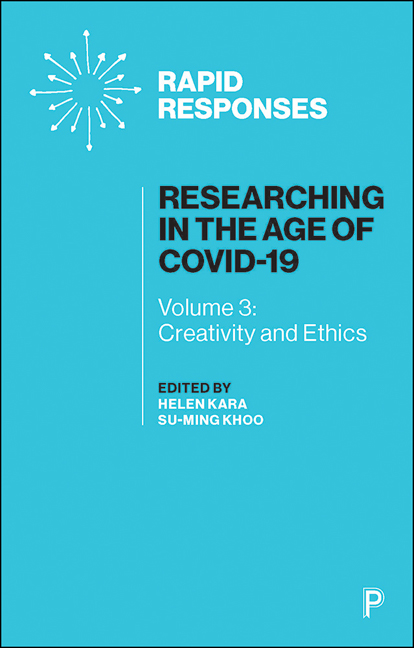10 - Scicurious as Method: Learning from GLAM Young People Living in a Pandemic About Cultivating Digital Co-Research-Creation Spaces that Ignite Curiosity and Creativity
Published online by Cambridge University Press: 23 March 2021
Summary
“What I love is how we managed to transition so swiftly from a study initially conceived to happen in-person, to digital and in solitude and – through the zines – in a way back to analogue. Meandering across platforms and techniques we still managed to generate heaps of data, discussion and reflection.”
(Niels Wouters in a co-research-creation team chat)Could COVID-19, this unexpected crisis, act as a comma in a co-research-creation project to become a breathing space and not a full stop? Maybe this pause is a colon: the two different periods of the project (and life in general) on either side of the pandemic, equally important and dependent on each other for full meaning. In this chapter, we tell the story of how a co-research-creation event (the Sci Curious Project) unfolded before and during the COVID-19 pandemic; the lead-up to its irruption (St. Pierre, 1997) and then what came after. ‘Scicurious as method’ emerged out of the unexpected pause and recalibration of the project; a method that emphasizes the creation of research spaces that activate scicuriosity in situated practice. We understand scicuriosity as emerging from collaborative research-creation events that ignite curiosity and creativity. Scicurious as method is presented through an encounter with speculative fiction and scicurious zine travels. Scicurious as method has significant ethical implications, these reify the potential of co-designed speculative inquiries with creativity and curiosity at their heart. This is, in part, due to its contingency on cultivating digital co-research-creation spaces that enfold rather than eschew the analogue and highlight the joyous potential of a deeply situated, co-designed speculative inquiry; an inquiry with galleries, libraries, archives and museums (GLAM) young people living in a pandemic.
About the research(ers)
We are an intergenerational co-research team from The University of Melbourne, Science Gallery Melbourne (SGM) and Science Gallery's Sci Curious advisory committee. Sci Curious are an advisory committee aged 14–25 that inform and shape the future of SGM exhibitions, public events and programmes. SGM is a new addition to the GLAM sector in Australia which shares Science Gallery International's mission to ignite curiosity where art and science collide (Gorman, 2010).
- Type
- Chapter
- Information
- Researching in the Age of COVID-19Volume III: Creativity and Ethics, pp. 102 - 111Publisher: Bristol University PressPrint publication year: 2020



